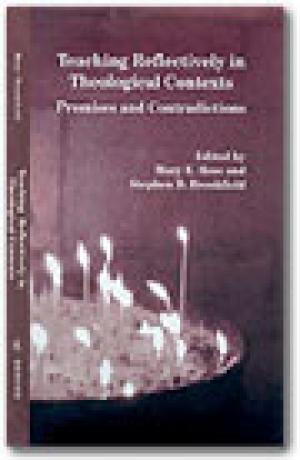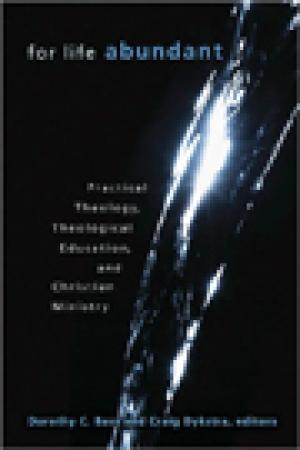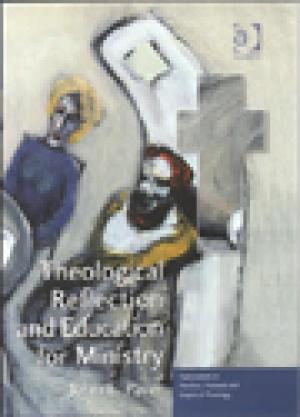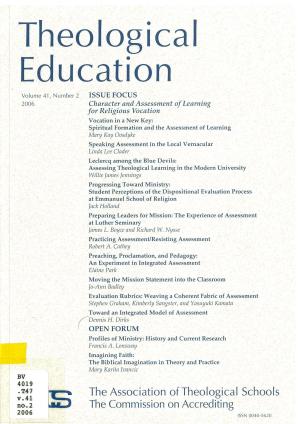Resources

Teaching Reflectively in Theological Contexts explores the dynamics, principles, contradictions and tensions of teaching within theological contexts. It offers practical suggestions on modeling pastoral leadership, building trust with learners, negotiating the dynamics of team-teaching, questioning received truth, teaching through discussions, working with diversities, and building a culture of reflective teaching. (From the Publisher)

What does it mean to lead a truly "life-giving way of life"? What kinds of learning and teaching will best prepare ministers to foster such a way of life in their congregations? How might teachers of practical theology best understand and undertake their task to educate and form ministers? Respected scholars and ministers explore such questions in For Life Abundant, probing and clarifying the significance of practical theology in the classroom, in the wider academy, and in actual ministry settings. (From the Publisher)

A major and continuing problem for theological education and the practice of Christian ministry is how to best achieve a genuine integration between theory and practice, theology and experience. The key claim of this book is that theological reflection, beginning with experience, is a method of integration and that pastoral supervision is a vehicle for theological reflection. In establishing this claim, John Paver demonstrates that the model and method have potential to be a catalyst for reform within theological colleges and seminaries. Three different theological reflection models are developed and critiqued in this book, and their capacity to be developed in particular contexts is explored. This book does not stop at ministry, cultural and personal integration, but is bold enough to make recommendations for structural integration within the theological institution. (From the Publisher)
Discussions on teaching and learning within theological seminaries often center on the question of student diversity, focused primarily upon issues of race, gender, and ethnicity. At the same time that seminaries are challenged to deal with a multitude of pedagogical suppositions emerging from increasingly diverse learning goals, seminaries must also pay attention to the ways their students challenge an institution's core mission to train ministers for service in churches and denominations. Based upon the author's experience teaching in a mainline Protestant seminary, the essay discusses three student cultures that often overlap among today's seminarians. These three student cultures, referred to here as "church seminarian," "new paradigm seminarian," and "vocational seminarian," carry very different understandings of the seminary's role to prepare students for ministry. A critical discernment of these cultures might challenge seminary faculty to reevaluate their educational and missional suppositions amidst divergent student career objectives.
The Wabash Center for Teaching and Learning in Theology and Religion has its most direct influence on faculty members who teach in colleges, universities, and theological schools. These faculty members, in turn, have an impact upon churches through their leadership and teaching in local communities. Wabash workshops encourage faculty to continue to develop four qualities that make a difference in their teaching and scholarship, in the lives of students who become community and church leaders, and ultimately in the life of the church: these are the abilities to (1) help pastoral leaders integrate multiple kinds of knowledge, (2) value context and particularity, (3) strengthen their skills as public theologians and community leaders, and (4) cultivate the encouragement to live lives of wholeness. The gift of hospitality at Wabash workshops provides the environment and space for faculty to engage these qualities in their teaching, research, scholarship, and living.

Journal Issue. Full text is available online.
Journal Issue.
Journal Issue.
Journal Issue.
Journal Issue.